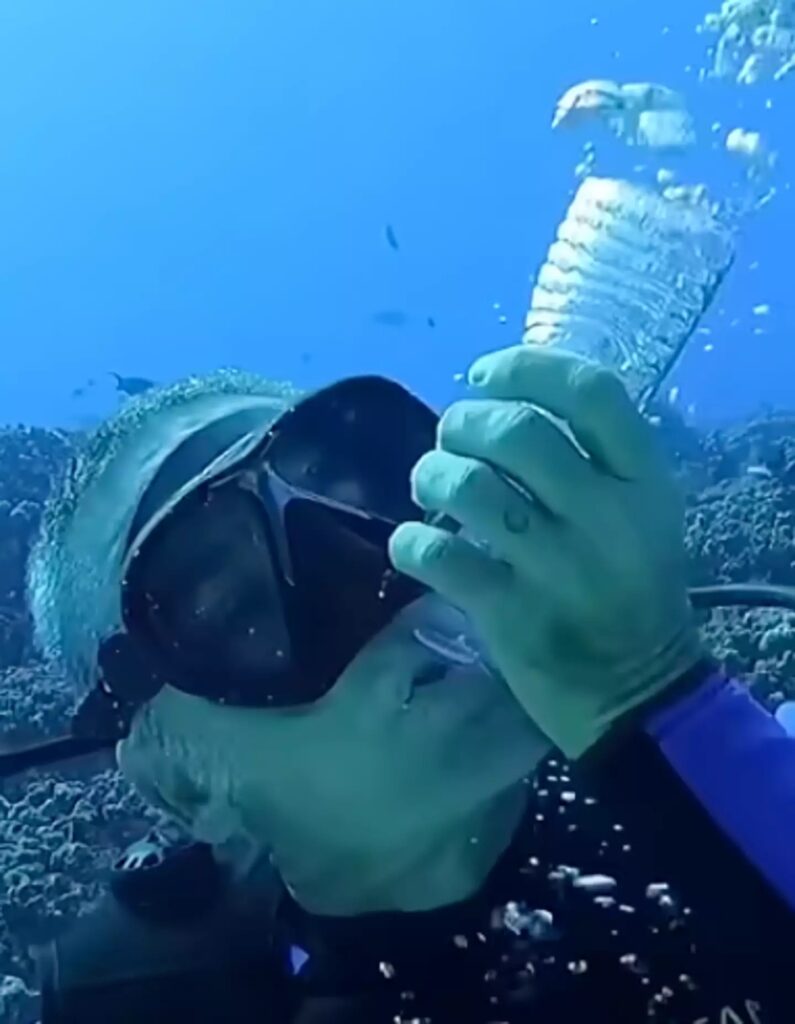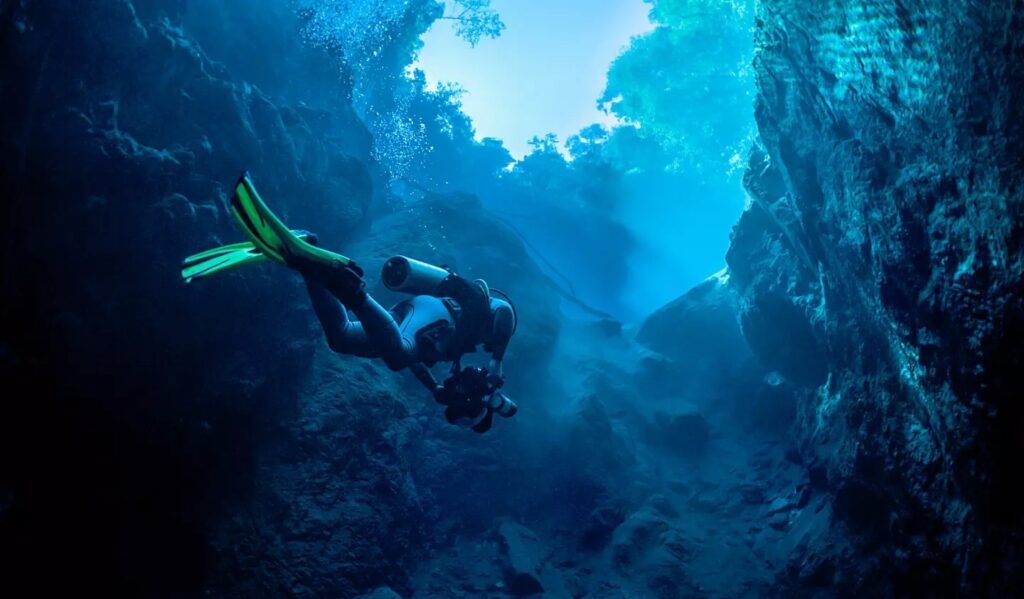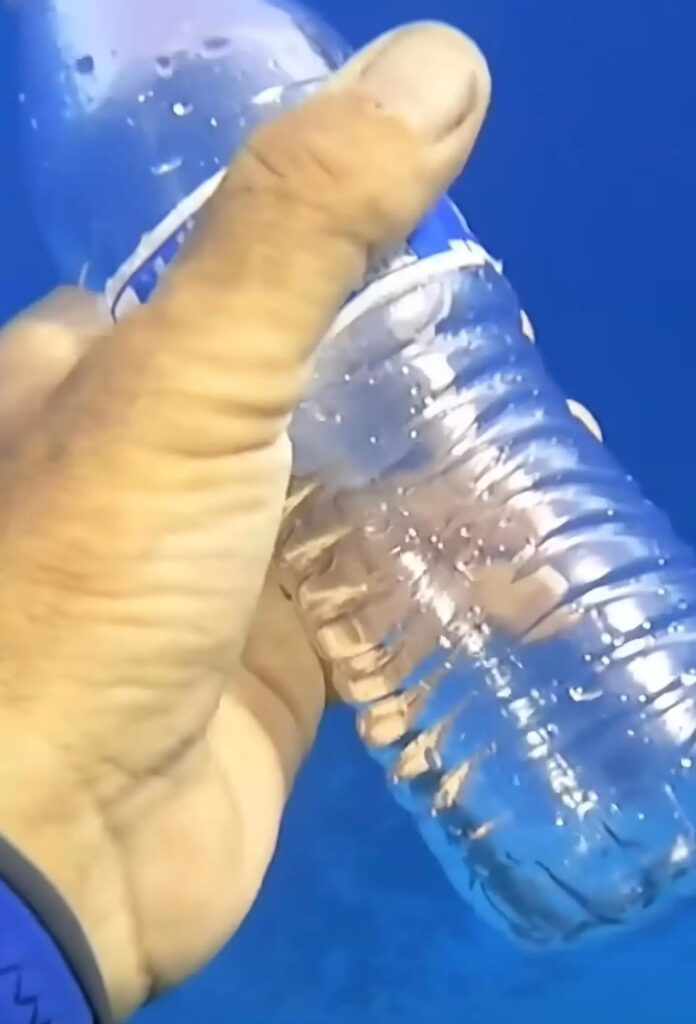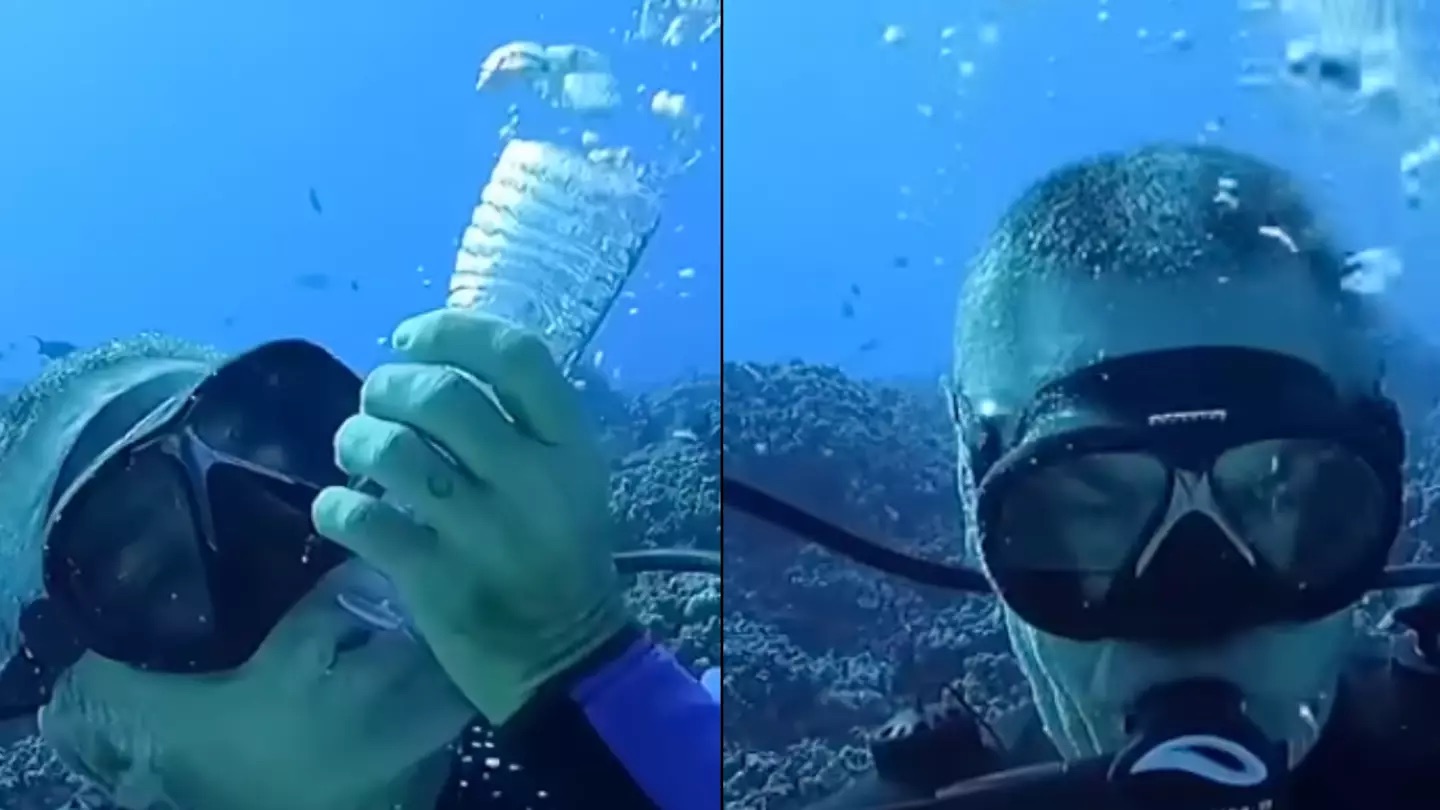A scuba diver captured an impressive underwater experiment to illustrate the dangers of holding your breath while diving. Benja Iglesis, an experienced diver and underwater photographer, frequently shares his expertise with his 13,600 YouTube subscribers. Having been diving since 1989 with over 6,000 dives under his belt, Iglesis brings a wealth of knowledge to his audience.
His website chronicles his adventures across every continent, including the polar regions, and over 25 countries, always with his camera in tow. As a certified PADI instructor and First Responder Instructor, Iglesis is well-equipped to explain the risks associated with scuba diving.

In a recent video, he set out to educate viewers on the serious risks of holding your breath after inhaling compressed air from a scuba tank. While compressed air allows divers to breathe underwater, its pressure changes with depth, posing risks if not handled correctly.
Unlike freediving, where divers hold their breath during descent and exhale before ascending, scuba divers breathe compressed, denser air as they descend. Iglesis demonstrated the danger of breath-holding during a dive by conducting an experiment at 60 feet underwater using a simple plastic bottle.

In the video, he explains: “We fill this plastic bottle with air at 60 feet underwater. As you go deeper, air compresses, and as you ascend, it expands.” As the bottle was brought to the surface, it expanded dramatically due to the decreasing pressure. He continued: “As I ascend, the bottle becomes harder under pressure. Let’s see what happens when I open it at the surface.”
At the surface, a light touch caused the cap to pop off, illustrating the dramatic expansion of air. “This is why you should never hold your breath while diving,” he warned. “You see that? Crazy!”

Iglesis’s experiment highlighted the dangers of barotrauma, where holding your breath during ascent can lead to lung overinflation or rupture, also known as ‘burst lungs.’ It serves as a powerful reminder of why proper breathing techniques are crucial for scuba divers.
Additionally, holding your breath while diving can result in air bubbles entering your bloodstream, increased pressure on your heart, paralysis, brain damage, and other severe complications. Scuba.com explains: “The air in your lungs becomes dangerous as you ascend. If you hold your breath while rising to the surface, the air expands as the water pressure decreases.
With no escape, the air pushes against your lung walls, similar to an overinflated balloon that risks bursting, potentially tearing or collapsing your lungs. There’s no good reason to hold your breath while diving, so avoid this risky habit.”
Social media users were impressed by Iglesis’s experiment, especially commending his retrieval of the bottle cap from the ocean, highlighting the importance of not littering, even in scientific demonstrations.
